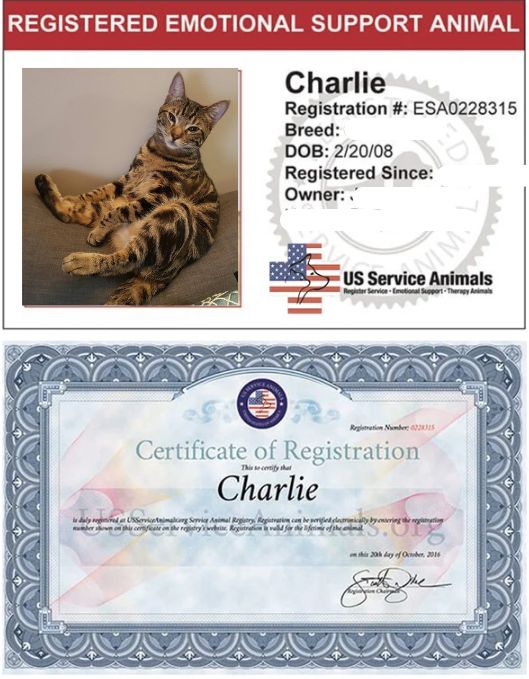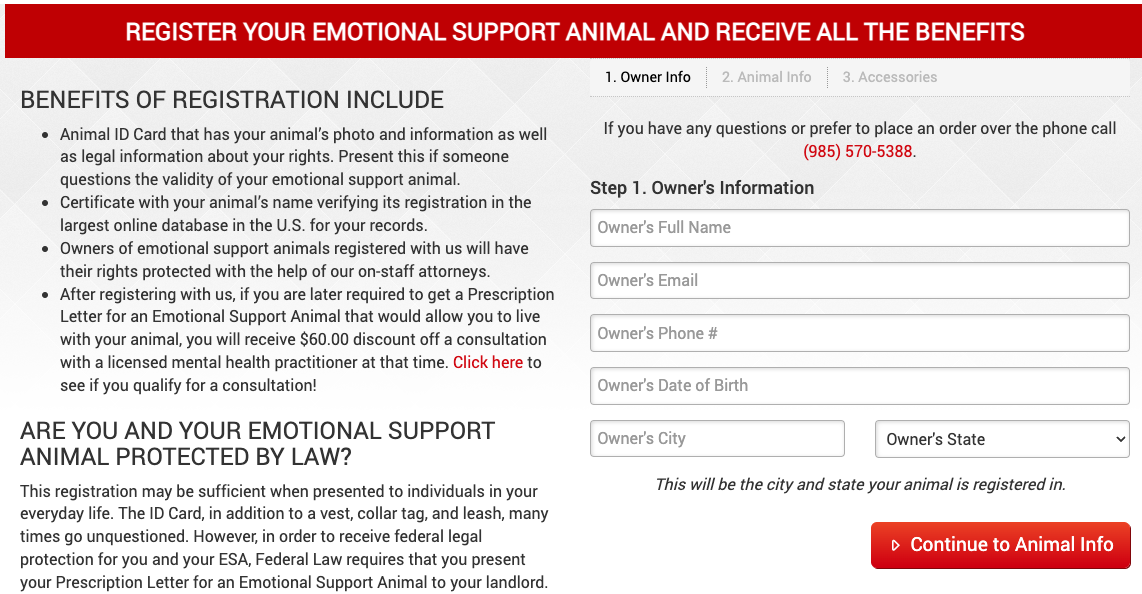Many people envision a loving dog when they hear the term “emotional support animal,” or ESA. Little did they know that cats can also be emotional support animals. Some people are not fond of dogs, and far too many people put off getting an ESA because they believe it must be a dog. That’s why cat emotional support is getting more popular these days.
While dogs are the most often used service animals, any animal, e.g. cats, can be utilized as an emotional support animal. An emotional support animal (ESA) doesn’t need to be trained. They simply need to provide emotional support through companionship to someone who has an emotional or mental disorder.
What is Cat Emotional Support?
Cats are excellent alternatives for anyone who require an emotional support animal. They are calm, clever, and friendly animals who can provide a soothing, comforting presence to their owners.
The rights that emotional support animals are granted distinguish them from typical pet cats. While registration of an ESA is voluntary and not required, only ESAs with sufficient documents will be granted these powers.
The following laws protect an emotionally impaired person and his or her ESA:
These regulations allow ESAs to accompany emotionally or mentally impaired people on airlines without paying a fee. Also, they cannot be refused in no-pet housing or charged pet security deposit costs.
It goes without saying that our kitties give us much-needed comfort and support. However, for some people, the need goes much deeper.
Are Cats Allowed to be Emotional Support Animals?

Cats can be wonderful emotional support animals. While dogs can be excellent service and emotional support animals, they are not a feasible option for everyone.
Some individuals are uncomfortable around dogs, while others may not be able to care for an active animal. If you don’t like dogs, you can train a cat to be an emotional support animal.
A cat’s presence can be relaxing and lessen anxiety. Having an animal to care for can make life more meaningful. Because of their normally placid disposition, cats make ideal emotional support animals.
Cats can be affectionate and entertaining family members to their owners, as well as other animals. While cats cannot be trained as assistance animals, they can make excellent emotional support animals with housing and flying privileges.
They are sociable, easy to care for and enjoy being around people. There is nothing like coming home to a loving emotional support cat after a long day for many people.
Emotional support cats may be terrific companions to have by your side, whether you are seeking a friendly cat to help you through depression or just want one to ease the worries of life a bit easier.
How to Register a Cat as an Emotional Support Animal

It is critical to recognize that an emotional support animal is solely for persons suffering from mental illnesses.
If you have mental health conditions, you can easily register your cat by scheduling an appointment with a mental health specialist. Organizations like US Service Animals can also guide you through the process.
Emotional support animals are not subject to registration. There is no formal registration procedure that must be followed. You’re good to go as long as your doctor has prescribed an emotional support animal.
However, there are some people who want official paperwork for registering their animals. There are places where you can pay to get a certificate and possibly buy vests or other stuff.

These are not essential, although many people prefer them. It is totally up to you whether or not to use one of these online resources, but keep in mind that it is not compulsory.
I registered some of my cats via US Service Animals, and I am happy I did such a contribution.
Benefits of Having an Emotional Support Cat

An emotional support cat can help people suffering from a variety of mental conditions, including:
Relieves Anxiety
Anxiety may be quite difficult to deal with, and emotional support cats can help significantly.
An emotional support cat might reduce anxiety since you now have something that is dependent on you.
Focusing on anything other than yourself can be quite beneficial for anxiety because it shifts your focus away from excessive rumination and going over and over the things that are causing your worry and toward caring for and loving your emotional support animal.
Alleviates Stress and Depressive Symptoms
Depression and stress are two more mental and emotional well-being issues that an emotional support cat can help with. Many people credit their emotional support animal with getting them through periods of acute depression or stress.
Provides Humans with a Sense of Purpose
Depression and other mental illnesses can make you feel hopeless, alienated, and unwanted. Taking care of another living creature might help you feel more connected to the planet. This benefit can be provided by animals who require little interaction with their keepers.
Reduces Loneliness
Cats can also provide emotional assistance by giving companionship. Loneliness is a particularly difficult mental ailment because it can lead to a slew of other problems.
Ownership of a cat or an emotional support animal can help alleviate some of the unpleasant impacts of loneliness.
Having emotional support cats can make individuals feel less lonely, which can have a significant impact on their well-being.
Improves Sleep Quality
An emotional support cat can help you unwind and feel less stressed before bed, which can enhance the quality of your sleep.
Having ESA on the bed at the beginning of the night can help some people fall asleep easier and wake up less. Some pets provide a warm and calming presence at night, which can help humans fall asleep faster.
Works in Conjunction with Other Treatments
Therapists and counselors are becoming increasingly aware that emotional support animals might help people overcome mental illness in conjunction with other forms of treatment.
It’s analogous to telling patients to exercise and consume healthy foods in order to control the signs of a mental problem or avoid depression.
ESAs are used alongside cognitive behavioral therapy (CBT). Pets are also used in mindfulness techniques, such as helping patients discover a sense of purpose, encouraging people to spend more time outside, and making people feel protected during very stressful circumstances.
How to Get an Emotional Support Cat
If you are looking into getting an emotional support cat, here are the steps that you have to do:
1. Set an Appointment with a Licensed Mental Health Professional
To get your cat approved as an emotional support animal for your condition, you must first speak with a trained mental health professional in your area.
2. Have Your Mental Health Evaluated
Once you’ve made contact with a qualified mental health practitioner in your state, they’ll gather information about your mental and emotional background and assess your mental health.
They must do this in order to establish whether you would benefit from an ESA. Some could contend that in order to be qualified for an emotional support animal, a person must fulfill certain criteria.
The letter, however, serves more as a declaration that an ESA can assist a person in managing a mental health condition and can even be accepted as a medical requirement to cope.
During the evaluation, they will also work with you to determine how having a therapy cat can benefit you. The mental health professionals will figure out how having therapy pets improves your psychological disability.
3. Get Your ESA Letter
Once it is evident that having emotional support cats will benefit you, your clinician will write you a legal ESA letter.
You can use this letter to relocate your therapy cats into any housing unit and ask your landlord to waive your pet charge, take them with you into some public areas, and even travel with them.
Conclusion
If you and your cat meet the specified requirements, you can register your cat as an emotional support animal.
The best thing you can do is ensure that you have all of the necessary information from your veterinarian, health care provider, and any supplementary papers when registering.
Once you have your ESA letter, you can have your feline companion with you as emotional support wherever you go.








Leave a Comment